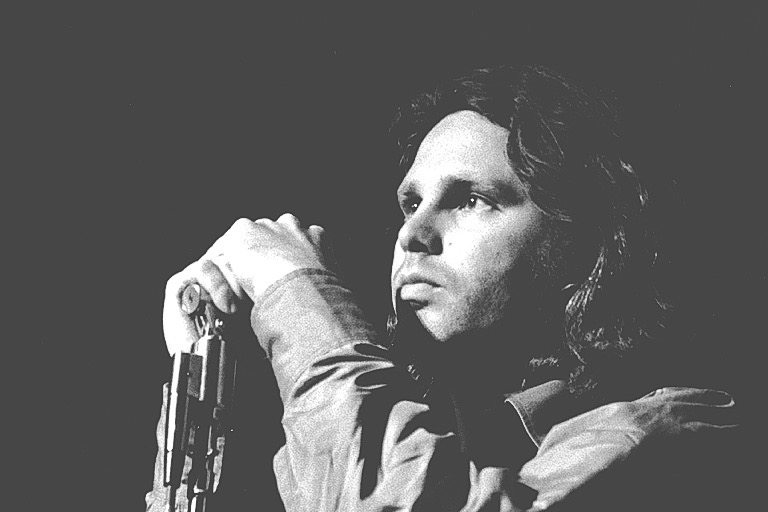Morrison’s End
- by Ian Penman

DOORS FRONT MAN JIM MORRISON REMAINS FASCINATING—EVEN IF HIS LITERARY AMBITIONS NEVER CAME TO FRUITION.
Jim Morrison’s bright spotlight time with The Doors lasted not quite five years: the band’s debut album arrived in January 1967, and L.A. Woman, the final work to feature the singer, was released the week of his death, aged 27, on July 3, 1971.
It’s now a half century since Morrison died in Paris in opaquely squalid circumstances, due to—take your pick—some mixture of alcohol, heroin, a small respiratory infection, and a general (not to say studied) carelessness. “When the music’s over / turn out the lights,” he sang in 1967, on The Doors’ second album, Strange Days. “Cancel my subscription / to the Resurrection.” Yet his revenant career as all-purpose Dionysian icon seems inexhaustible.
From the posthumous album An American Prayer (1978) and The Doors’ soundtrack appearance on Francis Ford Coppola’s Apocalypse Now (1979), to the serial publication of various “lost” Morrison writings and the lamentable Oliver Stone biopic The Doors (1991), there’s no medium that Morrison’s shade hasn’t found a way to inhabit.










